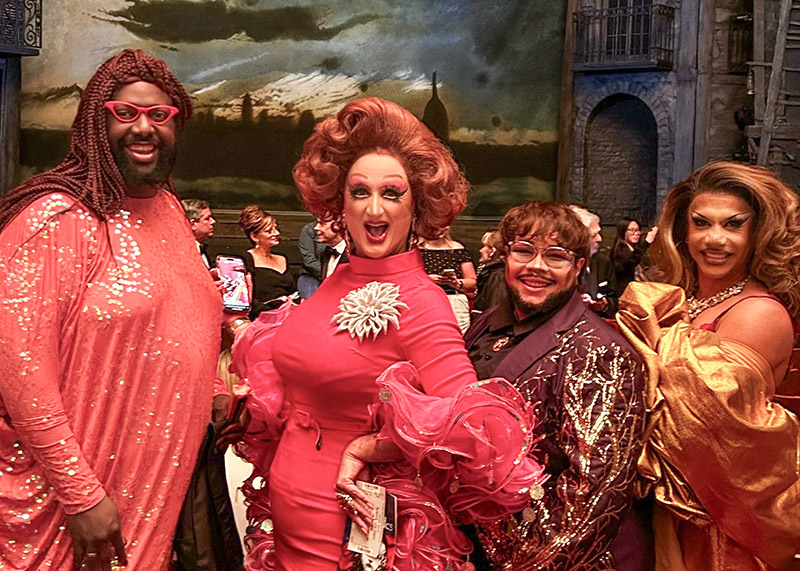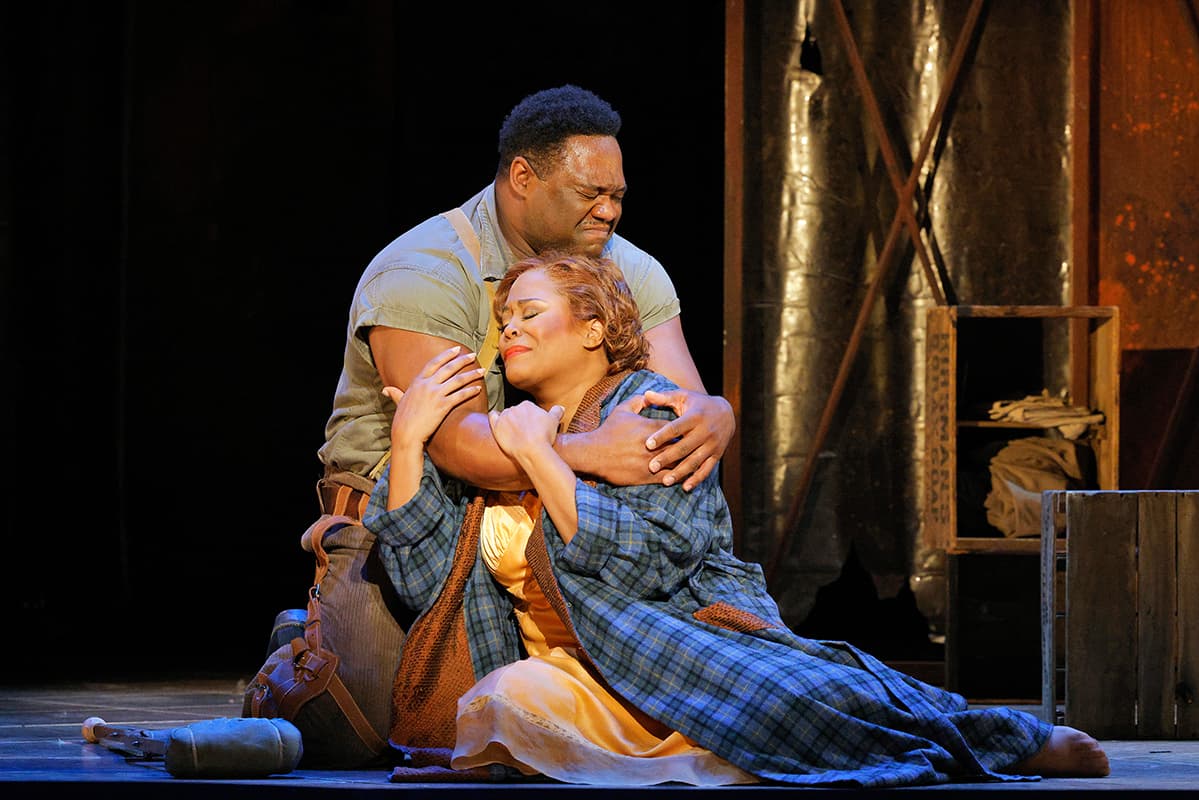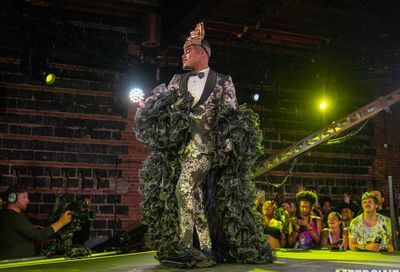Pipe Dreams
Flamboyant international organist Cameron Carpenter has garnered as much attention for his skills as for challenging tradition
MW: Speaking of, you’re trying to do that by engineering a new international touring organ. Tell me about that.
CARPENTER: The instrument [will be] a technological and an engineering first in the world. It is a proprietary software-driven digital organ that I will be able to tour with, but which will also allow me to play anywhere in the world, whether there’s a pipe organ there or not. Not only is this a digital organ, but unlike many cases where organists would play a digital organ only when a pipe organ isn’t available, we’ve built an instrument which is actually my preferred instrument. I really am so excited about what this organ will make possible, because it will vastly expand not only where I can play, but the music I can play, and the genres I can draw on. So you end up with this instrument that is much more musically diverse than any single pipe organ could be.
MW: So in a few years’ time when you come to the Kennedy Center, you might just play this and not the Concert Hall organ?
CARPENTER: This will be my permanent organ, so it is conceivable. The great, sort of elephant under the rug here, of course, is that the pipe organ in the Concert Hall continues to propagate the idea that every organ everywhere in the world should be different. Which of course doesn’t address the actual purpose of the instrument, which is to be an instrument, not to be a political statement or an expensive backdrop for an orchestra. So I will still play pipe organs from time to time, but they will never be my preferred instruments, they will never be the instruments I record on. And, ultimately, they’ll never be the instruments that really make me feel as though I’m giving my artistic best.
MW: Is this something that other organists will be able to use or purchase?
CARPENTER: No, for the simple fact that I’m not an organ company. I have designed three other organs that are built by the company building this, a company called Marshall & Ogletree in Needham [Mass.]. And I certainly will do everything that I can to propagate the technology.
Because when we talk about the organ, we really need to be talking about the organists. Every time a large pipe organ is installed, the last thing you hear talked about is what the implications are for young organists and musicians, the people who actually play them. I’m obviously enthusiastic at the chance to play at the Kennedy Center. But on the other hand, it doesn’t change the fact that the path forward, in terms of music and artistic expression and human freedom, is very seldom served by the conventions of the concert hall. The concert hall, increasingly as classical music has come into question, has become a more conservative, a more carefully guarded and defended place. And in those situations, it’s less and less likely to expect revolution to occur.
MW: The organ that you’re developing, will it be lightweight?
CARPENTER: I wouldn’t describe it as lightweight. It’s intended to be transportable, which is not exactly the same thing as portable. It’s absolutely not interesting, new or unusual or significant in any way to contrive an electronic organ that plugs in and has a little console that you can hook up to some speakers. This has been possible for 60 years. What has not been possible, and what has not been achieved and shown, is to make transportable an instrument of monumentality. This organ will travel in two 20-foot trucks. It’s by no means a small instrument. It’s in fact specifically and intentionally designed to be an incredibly large instrument. What my vision was to this is that we need to be able to take one of the world’s greatest organs everywhere that I go. And fundamentally that it also be my personal instrument — just as Joshua Bell plays his own personal violin. It’s perfectly fine for me to play the organ at whatever hall, particularly if I’m playing with concertos and orchestras. But if I’m playing on my own, to really get the experience that I can offer, then I need to be playing my own instrument.
MW: This is really a way for you to champion your music and the organ, as well as classical music in general?
CARPENTER: It really is. Championing is a good way of putting it. Again, it’s not interesting to take around a small organ that was made on an assembly line. But if you have a unique world first, which is one of the most astoundingly engineered things, and which is one of the most musically rich and diverse resources, especially in the hands of somebody who is intentionally crossing genre boundaries, then you have something that’s really worth going to see and hear. So, of course it is good for the organ, and it is good for music in general, not just classical music.
MW: You’ve expressed dismay at the repression and homophobia you see in the organ world, which seems to have an inordinate amount of gay players. Can you elaborate?
CARPENTER: I haven’t done any tangible research, but it is an anecdotally accepted truth in America that generally male organists are thought to be gay. And there is certainly, undeniably, a large community of gay organists. It’s observable at an organ convention if you’re unfortunate enough to have to go to one. Women, while significantly present, are by no means as equally represented as their male counterparts. And amongst the men of the organist community, one could not help but notice that the overwhelming predilection does seem to be that most of them are gay — and that a lot of them work in church. This wouldn’t be so significant to me except that there have been many well-publicized cases in the last few years of organists losing their [church] jobs because they were gay. Which of course immediately gets my hackles up on end.
I talk about this a little hesitantly and in these carefully couched tones not because I’m worried that some non-gay male organist would be offended, but rather that I’m actually painfully aware of what other great challenges the gay community and we all face, in terms of discrimination. And I don’t want anybody to misunderstand that in the age of Syria and Russia that I’m attempting to say that the world’s greatest problem is the repression of American gay male organists. [Laughs.] But it is a problem! And it seems to me that as long as we’re talking about repression anywhere, we actually have to talk about it everywhere.
Cameron Carpenter performs an organ recital Wednesday, Oct. 16, at 8 p.m., at the Kennedy Center Concert Hall. Tickets are $15. Call 202-467-4600 or visit kennedy-center.org.
Support Metro Weekly’s Journalism
These are challenging times for news organizations. And yet it’s crucial we stay active and provide vital resources and information to both our local readers and the world. So won’t you please take a moment and consider supporting Metro Weekly with a membership? For as little as $5 a month, you can help ensure Metro Weekly magazine and MetroWeekly.com remain free, viable resources as we provide the best, most diverse, culturally-resonant LGBTQ coverage in both the D.C. region and around the world. Memberships come with exclusive perks and discounts, your own personal digital delivery of each week’s magazine (and an archive), access to our Member's Lounge when it launches this fall, and exclusive members-only items like Metro Weekly Membership Mugs and Tote Bags! Check out all our membership levels here and please join us today!



























